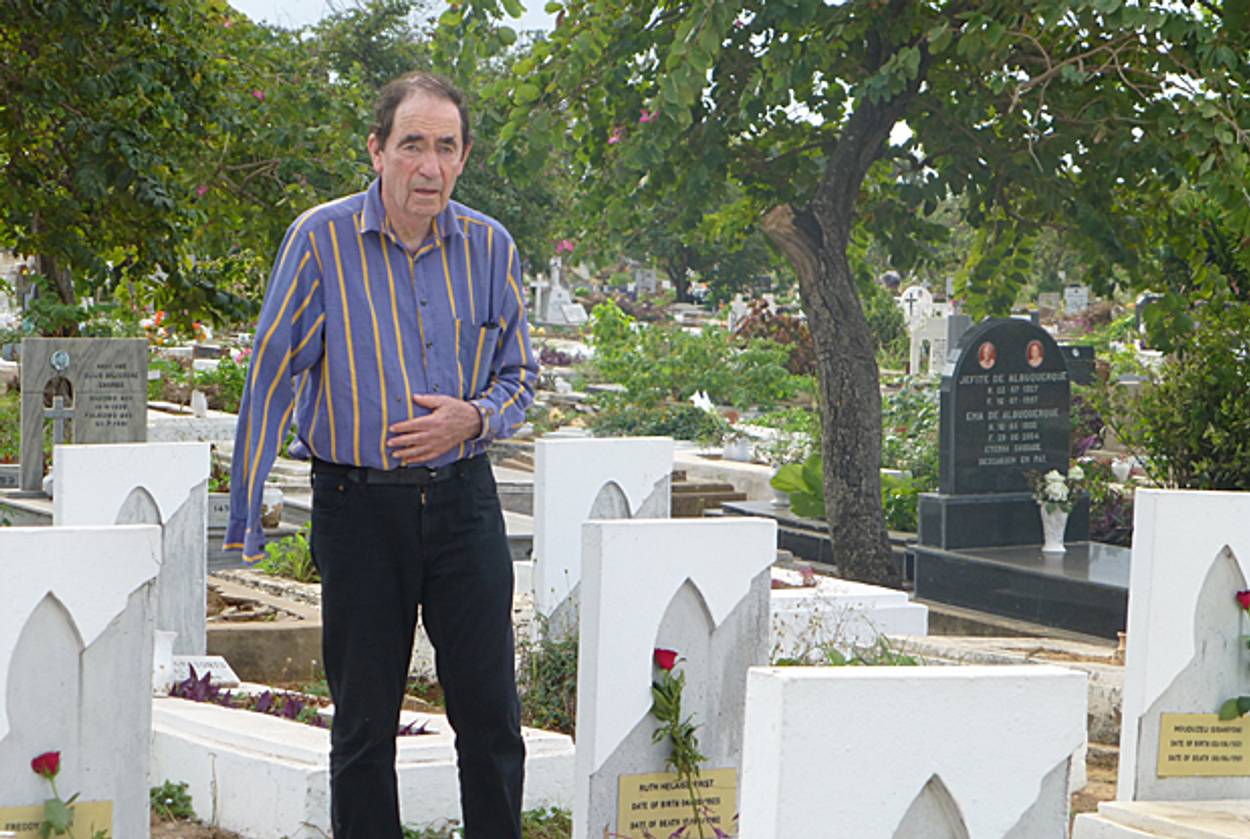Film Honors South African Freedom Fighter
Jurist Albie Sachs fought apartheid from within, helping to shape life after




A documentary that begins with a bang—the literal bomb blast that would forever change the life of anti-apartheid activist Albie Sachs—might suggest a film in which the violence of the South African struggle allows for its most striking revelations. But the most illuminating moments in Soft Vengeance: Albie Sachs and the New South Africa, come not from riotous sound, but from the silence of solitary confinement and the quiet of exile.
“There is a vast amount of literature about our struggle to transform our country,” Sachs told Tablet over email. “I wish there was more candid self-reflection. A good, strong cause can only benefit from internal critique.”
The documentary, directed by lawyer-turned-filmmaker Abby Ginzberg, fulfills that wish, depicting the introspective freedom fighter, legal scholar and future constitutional court justice in triumphant moments of strength as well as tender moments of vulnerability. But in our exchange, Sachs, the son of Lithuanian-Jewish immigrants to South Africa, expanded matters to include the effect his heritage had on the strength of his convictions—especially when he was placed in solitary confinement and the only book in his cell was the bible. (Sachs also spoke with Vox Tablet in 2007; you can listen to that interview here.)
“I read what was called the Old Testament with unusual intensity,” Sachs told me. “Consolation came to me from the poetry, wisdom and outwardly extending arms of Solomon, and the soaring, millenarian dreams of the prophets. Without doubt, stories about the pogroms in Lithuania and the murderous assaults by the Nazis on Jews had entered my soul, and encouraged me to take part in the freedom struggle in South Africa that led me to jail.”
It is through similar moments that Soft Vengeance derives its power. Ginzberg sheds light on how Sachs arrived at a number of the key moves of his career—his cautioning leaders of the African National Congress (ANC) to prohibit human rights abuses in their revolutionary Freedom Charter, his co-authorship of one of the world’s most progressive constitutions, and his advocacy for equality as a member of the country’s highest court. It paints a picture of Sachs as a young lawyer and legal advisor to the movement for equality in South Africa and traces the roots of his humane, pragmatic approach to the fight against apartheid.
Sachs became a lawyer by the age of 21. His early clients were South Africans detained under the 90-Day Act, which allowed police to detain citizens without stated reason for 90 days and re-arrest them after the time period elapsed. After being arrested on two different occasions under that same law, Sachs went into exile, first in London, where he studied and taught law, and later in Mozambique, where he conducted legal research on the newly independent democracy.
In early April 1988, in Mozambique’s capital, Maputo, a bomb put in his car by South African security agents went off, resulting in the loss of his right arm and the sight in his left eye. Instead of being discouraged by it, the injury filled him with new zeal. After years of consulting with the ANC, he was invited to Ireland to work on a draft of the new bill of rights for a democratic South Africa. Present at the negotiations between the ANC and the National Party government, he was later appointed to a position on the country’s first Constitutional Court bench, where he famously authored a 2005 decision that overturned South Africa’s same-sex marriage ban. This past weekend, Sachs was awarded the first-ever Tang Prize for Rule of Law, considered a kind of Asian Nobel Prize.
The documentary, which is currently showing at film festivals around the world, is also notable for its interviews with high-profile members of the South African government and the ANC, as well as such figures as Archbishop Desmond Tutu and Justice Ruth Bader Ginsburg. Ginzberg also includes a powerful interview with Henri van der Westhuizen, a former South African military official responsible for the attack that nearly killed Sachs, a viewpoint rare in many stories about of the fight for democracy in South Africa and a particularly poignant aspect of the film.
Soft Vengeance traces the full arc of Sachs’ life—from his struggle against a government to his rise to the highest levels of another.
“The physical contexts could not have been more diverse—different continents, in jail, on the bench, debates in courts of law and discussions with freedom fighters in small halls where we might be attacked at any moment,” Sachs said. “The modalities differ, but the core impulse is the same.”
Soft Vengeance: Albie Sachs and the New South Africa will screen at the San Francisco Jewish Film Festival, July 24- August 10. Additional screenings will take place throughout the summer; a complete schedule is available here.
Previous: The Rabbi and Nelson Mandela
Related: Nelson Mandela Was a Revolutionary—and These Jews Made Common Cause With Him
Solomon’s Son [Vox Tablet]
Jared T. Miller is a freelance journalist based in New York. He has written for Time, the New York Daily News, ABC News and the Forward, among other publications.
Jared T. Miller is a freelance journalist based in New York. He has written for Time, the New York Daily News, ABC News and The Forward, among other publications.